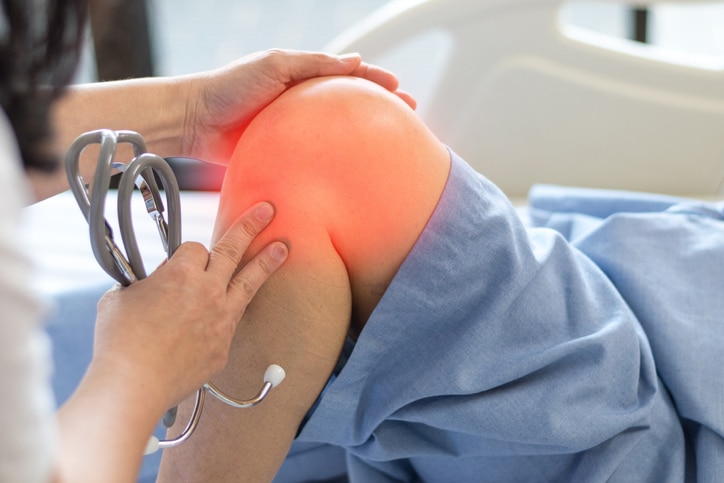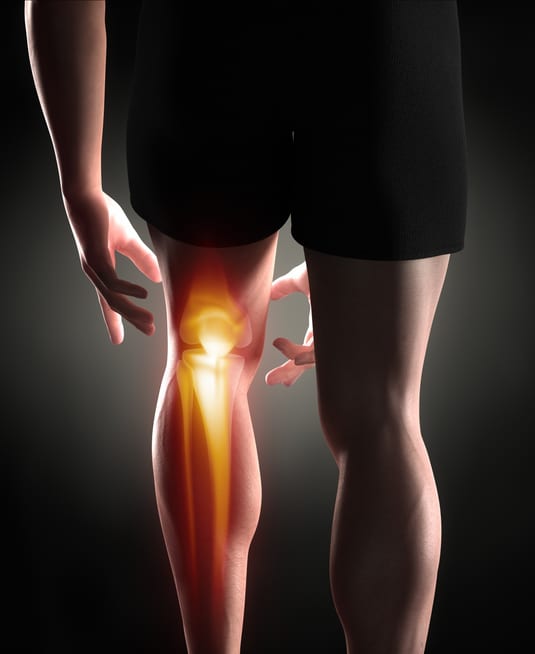Arthroscopy is a minimally invasive procedure that allows doctors to examine tissues inside the knee. During an arthroscopic procedure, a device known as an arthroscope is inserted into a small incision in the knee. Through this tube, a thin fiberoptic light, magnifying lens and tiny video camera are inserted, allowing the doctor to examine the joint in great detail. Arthroscopy may be a diagnostic procedure following a physical examination and imaging tests such as MRI or CT scans or X-rays. It may also be used as a method of treatment to repair small injuries in the knee. Call 631.689.6698 today to schedule a consultation with our experienced physicians and learn more about knee arthroscopy!
See What Our Patients Are Saying...
"Warm environment when you need it most! Dr. Gamez spoke to me in a manner that was reassuring, positive and made me feel comfortable with my upcoming surgery. I would recommend Dr Gamez to my friends and family!"
- K.P.
What conditions does a Knee Arthroscopy treat?
An orthopedic specialist may perform knee arthroscopy to help diagnose injuries and repair them at the same time. This procedure may be done to more closely evaluate the reason for swelling and pain in the knee joint. The arthroscopic scope is a very small instrument with a camera on the end. When inserted, it sends real-time images of bones and soft tissues to a monitor for the doctor to observe. If necessary, special instruments may be used during the arthroscopy to repair ligaments, tendons, or cartilage. Tools may also be used to suture bones together to repair fractures. Some of the specific conditions that a knee arthroscopy may diagnose and treat include:
- Torn meniscus
- Bursitis
- Anterior cruciate ligament (ACL) tear
- Medial collateral ligament (MCL) tear
- Patellar tendonitis
- Bone fracture
- Synovitis, a condition in which the soft tissue inside of the knee joint becomes inflamed and irritated

What Are the Benefits of A Knee Arthroscopy Procedure?
Because it is minimally invasive, arthroscopy offers the patient many advantages over traditional, more invasive, surgery. These include:
- No cutting of muscles or tendons
- Smaller incisions
- Less bleeding during surgery
- Less scarring
- Shorter recovery time
- Shorter and more comfortable rehabilitation

Minimally invasive fast pain relief
Knee arthroscopy is quickly becoming the ideal procedure for many conditions affecting the knee. Its minimally invasive advantages allow patients to receive fast and simple pain relief, increased range of motion and restored function, while avoiding or delaying the need for joint replacement surgery. Despite its many advantages, arthroscopy is not appropriate for every patient. Some patients, especially those with knee problems that are in difficult-to-see areas, may benefit more from conventional surgery.
About The knee arthroscopy procedure
Knee arthroscopy is performed on an outpatient basis under local or general anesthesia, depending on the type and severity of the condition, as well as the patient's personal preference. During the procedure, the surgeon inserts the arthroscope into the knee through a tiny incision. This instrument is used to identify any damage or abnormalities within the knee, or to confirm the diagnosis of a previous imaging exam.
If damaged areas are detected, they can be repaired during the same procedure by inserting surgical instruments into additional small incisions.

What to expect during recovery
After a knee arthroscopy , patients often experience swelling and pain for several days. These symptoms can be controlled by the usual home remedies: resting and elevating the leg, applying ice and taking over-the-counter painkillers. Patients are encouraged to get up and walk around as soon as possible after the procedure, although crutches or a cane may be needed for some period of time.
Most patients can usually return to work within a week, but will need to undergo physical therapy in order to restore full range of motion to the joint. Most patients can resume light physical activities after a few weeks, although full recovery from knee arthroscopy may take 12 weeks or longer.

Potential risks
While knee arthroscopy is considered safe for most patients, there are certain risks associated with any surgical procedure. These risks include: infection, blood clots, accumulation of blood in the knee, nerve damage or adverse reactions to medications or anesthesia. In the great majority of cases, the knee arthroscopy goes smoothly.
Is a Knee Arthroscopy painful?
No. For this procedure, patients receive either general anesthesia or a local anesthetic injection. Both forms of anesthesia are effective at blocking pain signals from the operative area. The brain cannot register pain until the anesthesia wears off completely. At that time in the recovery process, patients can expect to experience some degree of soreness or aching.
How long will my knee hurt after arthroscopic surgery?
Discomfort is usually at its highest during the first 24 hours after knee arthroscopy. After that initial period in the recovery process, patients should notice that comfort improves a little each day. It continues to be necessary and helpful to ice and elevate the leg fairly regularly for two weeks or longer. The use of approved over-the-counter medication also helps manage discomfort so you can engage in the prescribed physical therapy exercises that will restore flexibility and strength to the knee and surrounding muscles. While the majority of post-operative pain resolves in the two weeks following the arthroscopic procedure, some patients may notice that they have lingering pain for up to six weeks. This is not indicative of a complication, but it may be something to discuss with your doctor to help you better understand where you are in the progress of your recovery.
When can I return to work after arthroscopic knee surgery?
If you work a desk job, you may be ready to return as soon as three to five days after your knee arthroscopy. However, if your right knee was operated on, it may take a week or two before your leg is strong enough to safely drive. Also, if your work requires more physical activity, lifting, or pushing objects, you may need four to six weeks off to be able to fully resume your responsibilities. Recovery after knee arthroscopy can be supported by carefully following all of your postoperative care instructions, including icing and elevating and, especially, performing the physical therapy exercises as they are prescribed by your doctor or physical therapist.
Can I combine a Knee Arthroscopy with other procedures?
Knee arthroscopy may be performed to diagnose and/or treat knee injuries due to trauma, overuse, or age-related deterioration and inflammation. In some cases, patients may have knee arthroscopy on both knees in the same visit. However, this must be carefully considered both by the doctor and the patient. The experienced physicians at Orthopedic Associates of Long Island dedicate a good deal of time to consult with and examine each patient. Treatment recommendations may vary based on the unique factors of each case. Generally, orthopedic procedures are combined only when necessary and suitable for the patient in terms of anticipated recovery.
Schedule Your Knee Arthroscopy Consultation on Long Island!
For more information or to schedule you’re a consultation to discuss the knee treatments with one of our physicians, call us at 631.689.6698, or click here to fill out one of our online contact forms and we will reach out to you as soon as possible.


